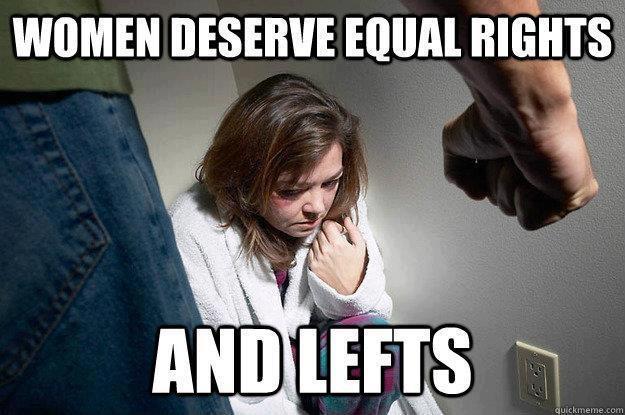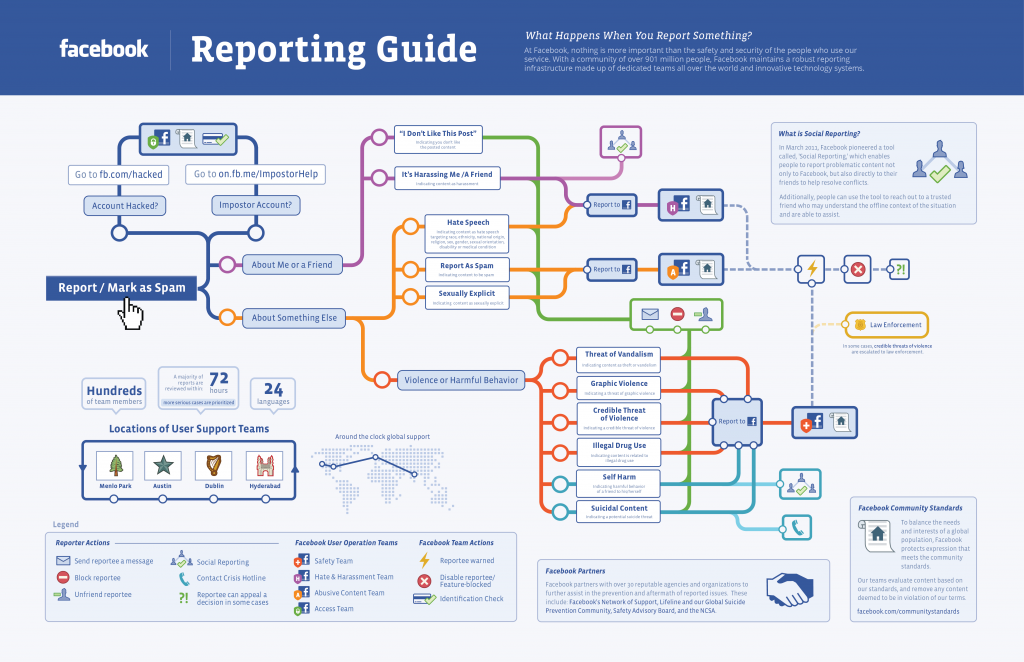Last night I attended my local Take Back the Night event as part of April’s Sexual Assault Awareness Month. For those that are unfamiliar, Take Back the Night is an annual event that takes place in communities across the country and encourages victims of sexual assault and rape to share their stories and empower themselves by reclaiming the taboo events that lead to their victim-hood The testimonials delivered at last night’s event were both powerful and horrific. Topics ranged from the high rate of abuse of indigenous women on ‘reservation’ land, to the invisible war taking place within the military. It was clear in this space just how real and traumatic our culture of rape is, and the serious repercussions that it has (repercussions for victims rather than for the rapists). Of course this culture of sexualized violence, and of violence against women, extends beyond our homes and streets, parks and classrooms, and into our digital online world.
Soraya Chemaly recently discussed this phenomenon in her article Facebook’s Big Misogyny Problem, published in the online version the UK’s The Guardian. She elaborates further in a followup piece on Fem2.0 called What Facebook Continues To Tell Us About Violence Against Women. I’ll summarize her points here briefly and then I’d like to dig a little deeper with my own analysis. Below is a bullet outline of Ms. Chemaly’s main points…
- Misogynist content on Facebook is vicious and rampant (example).
- Those who speak up against misogyny on Facebook are often targeted and harassed both on and off of Facebook.
- Facebook does have Community Standards that ban ‘hate speech’ from Facebook but Facebook refuses to categories misogynist material, like the example above, as such.
- The misogynist norms in our offline culture make it easier for Facebook to allow this type of material on Facebook
- Facebook COO Sheryl Sandberg, who recently wrote a feminist book about women in the workplace titled Lean In: Women, Work, and the Will to Lead, should step up crackdown on material on Facebook that promotes violence against women.
Facebook’s Community Standards
Soraya Chemaly does point out that while the internet is full of objectionable material, Facebook is not the same as the internet at large and already exercises it’s editorial judgement in the way that it enforces it’s community standards rules. While I come down on the side that Facebook should censor absolutely as little as possible, in practice Facebook takes down lots of material and I too can’t help but notice the hypocrisy, or at least inconsistency in the way Facebook chooses what to allow on it’s site. There are two categories in Facebook’s community guidelines that would seem to ban a lot of this misogynist content. First is the hate speech clause that states in part “We do not permit individuals or groups to attack others based on their…sex, gender…”. Images like the domestic violence meme, given as an example earlier, very clearly are an attack on women and fall directly under the definition given above. However in the same hate speech guidelines it says that Facebook “distinguishes between serious and humorous speech”, and because Facebook interprets these images as humor, they remain up. Second, Facebook’s standards have a section on violence and threats where it states “You may not credibly threaten others”, but again Facebook uses it’s discretion to catalog these threatening images as ‘not credible’. I do understand that this type of content doesn’t directly threaten any one individual but their overall threatening nature cannot be denied, and Facebook could easily exercise it’s judgement in the other direction in order to take down images that explicitly encourage violence against women. *I’d also like to note that I think that some of the worst misogynist content actually violates Facebook’s vague graphic content standard as well.
Cultural Offline Norms and Facebook’s Policy
The fact that Facebook views this type of material that encourages violence against women as humor does not happen in a vacuum. It is the fact that rape jokes, victim blaming, sexualized violence etc. are commonplace in our offline culture that allows Facebook to take this view in regards to their community standards policy. Mr. Chemaly I think correctly points out that similar content targeting racial or religious minorities would be viewed with much more disgust and have a greater chance of being taken off of Facebook because they are less culturally acceptable. Sex based hate speech just isn’t acknowledged to the same degree in our society and it is this pervasive ignorance that allows Facebook to tolerate this clear hate speech. In regards to these materials creating a hostile and threatening environment on Facebook, Facebook fails to recognize the cumulative affect that content like this on their site has on it’s female users, and I can’t help but spectulate that their failure to understand this fact has something to do with Facebook’s cavalier male dominated workforce.
Real World Consqeuences
Just as our offline culture effects how people act on Facebook, so too does the content on Facebook effect peoples’ behavior offline. Bearing witness to the horrific stories that were shared at last night’s Take Back the Night made me realize just how impactful images around rape and violence are, and how misogynist images on Facebook work to silence victims and dismiss their trauma as humorous. These images have powerful real world consequences and I do believe that these images contribute to the fact that 1 in 5 women in the US have been sexually assaulted. Though I cannot prove causation, it seems reasonable to assume that these images that normalize the behavior of rape and abuse are how young men learn that rape is acceptable activity. Anyone who is familiar with the issues surrounding gendered violence in our culture knows that one of the root problems is that most men, and some women, don’t take the issue seriously because their exposures to these issues come from the perspective of the attackers which minimizes the harmfulness of these acts and either ignores or actively intimidates the victims. The social and interactive nature of Facebook also allows for a space where these behaviors are reinforced and validated by like minded individuals. I know for a fact that the local University of Arizona student that walks around campus with a sign that read “You Deserve Rape” has received support for his actions from people on Facebook.
Conclusion
In all actuality I would want Facebook to remove itself entirely from the editorial process and allow all forms of legal speech on it’s website. However Facebook has already imposes itself as an editor to remove things like pictures women breastfeeding, images of war, questionably copyrighted material, and as such it seems completely appropriate to ask Facebook to lend a hand in combating the rampant image around sexual violence that terrorize victims and encourages further abuse. It is unfair to blame Facebook alone for the rampant sexual assault in our communities but it is completely fair to ask Facebook to accept responsibility for the role that it plays in encouraging this violence.
Further Reading Material
- Original Guardian Article by Saraya Chemaly
- Saraya Chemaly Followup on Fem2.0
- Nina Bahadur Response on Huffinton Post
- 2012 Huffington Post article bt Saraya
- Grace Gedeye article from the Seattle Times
- Everyday Sexism: examples of sexism online



One Comment